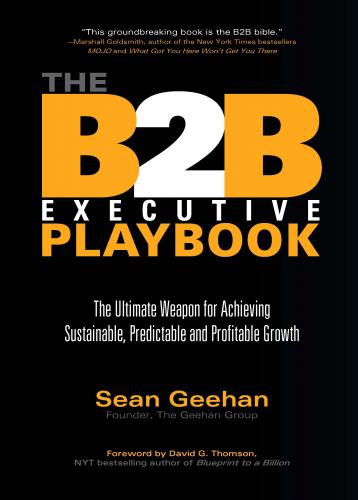Market Collective
A group of decision makers or executive customers drawn from a B2B company’s key accounts in terms of strategic importance and revenue contribution.
When done correctly, the creation of a market collective, and its systematic connection to the leadership team of your company, becomes the basis on which decisions are made regarding strategy, business model innovation, planning, marketing, innovation and development, acquisitions, and sales and service. This step in the Playbook addresses a multitude of common problems that plague decision making within B2B companies, including:
An overly intense focus on internal considerations or end users
Reactive versus proactive strategic thinking
Risk aversion and resistance to change
A poor grasp of the marketplace and other externalities, including globalization, niche competition, and technological change
Internal conflict and lack of support within the leadership team
The Engage step is the first step in the process of addressing and fixing these and many related issues. This step is discussed in detail in Chapter 4.
Step 2: Plan
Strategy guru Michael Porter describes strategy as simply “what your firm will and will not do.” That sounds straightforward, but B2B leadership teams that unanimously agree on what their companies should and shouldn’t do are not easy to find. Much more commonly, the strategic planning process in B2B companies is overly complex and too far removed from the marketplace. And in the end, it produces a plan in which the company’s leaders have little or no confidence. Too often, the strategic part of the process gets shortchanged for the planning part. Strategy meetings become sales planning and budgeting sessions, or they get hung up on short-term decision-making, none of which provide long-term direction, much less a plan for sustainable, predictable, profitable growth. It’s no wonder that leadership surveys conducted by McKinsey & Co. have consistently found that 70 percent of global executives are dissatisfied with their strategic planning process.
If they hope to attain sustainable, predictable, profitable growth, B2B companies require strategic plans that account for the nature of revenue concentration, the differentiation of users from decision makers, and the overall complexity of the B2B buying process. Executive customers can provide this focus and build confidence in the strategic planning process and the plan it produces. In Chapter 5, we’ll discuss how B2B companies can utilize their executive customers to drive a market-aligned strategic planning process.
Конец ознакомительного фрагмента.
Текст предоставлен ООО «ЛитРес».
Прочитайте эту книгу целиком, купив полную легальную версию на ЛитРес.
Безопасно оплатить книгу можно банковской картой Visa, MasterCard, Maestro, со счета мобильного телефона, с платежного терминала, в салоне МТС или Связной, через PayPal, WebMoney, Яндекс.Деньги, QIWI Кошелек, бонусными картами или другим удобным Вам способом.
